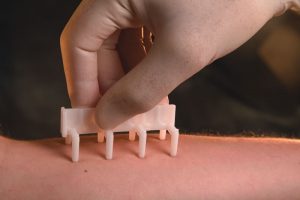Caring for people with severe allergies is important for all the community, with ongoing education and sharing the latest information vital to help keep everyone safe.
Allergies are very common in Australia, affecting around 20% of people at some time in their lives. Allergy is also one of the major factors associated with the cause and persistence of conditions such as allergic rhinitis, eczema and asthma. Identifying the allergen/s causing the symptoms is an essential part of managing allergic diseases.
Awareness is a key factor in helping to identify and manage allergy-based diseases with most people living full and healthy
lives with a few minor lifestyle adjustments to avoid allergy triggers.
Allergy triggers can be environmental or food-based with the more severe allergies potentially leading to anaphylaxis.
The top causes of food-based allergies in Australia are:
- Cow’s milk
- Eggs
- Peanuts
- Shellfish
- Sesame
- Soy
- Fish
- Wheat
- Tree nuts
At First Aid Accident & Emergency we provide individuals, childcare workers, teachers, GP’S with specialised training on how to deal with allergies and anaphylaxis including administering an EpiPen.
FIRST AID TREATMENT
The below symptoms are typical of a severe allergic reaction, although it can be different for everyone:
- Skin rashes, itching and hives.
- Swelling of the lips, tongue or throat.
- Shortness of breath, trouble breathing, wheezing (whistling sound during breathing)
- Dizziness and/or fainting.
- Stomach pain, vomiting or diarrhea.
If you notice any of these symptoms on someone, try to communicate with them to confirm if they are carrying an EpiPen. if so, follow the instructions on the EpiPen to administer a shot. Immediately after, call 000 and follow the instructions of paramedics until help arrives. Keep the patient lying still and calm.
If they have no EpiPen or management plan, immediately call OOO, keep the patient calm and still and follow the instructions of paramedics until help arrives.


